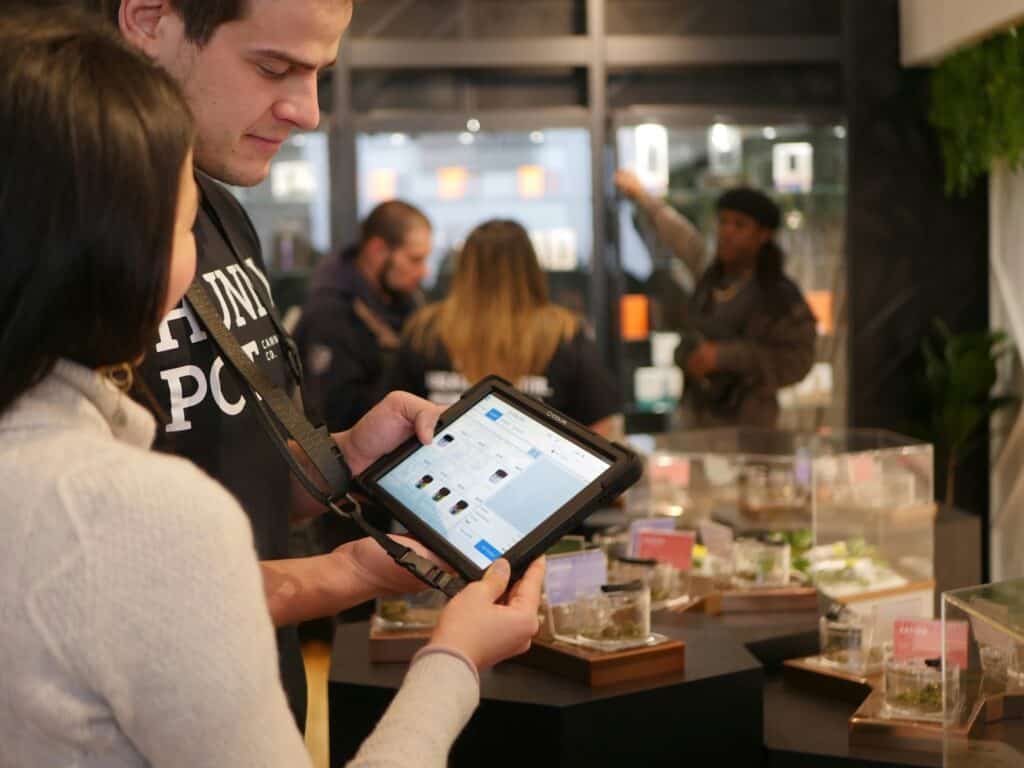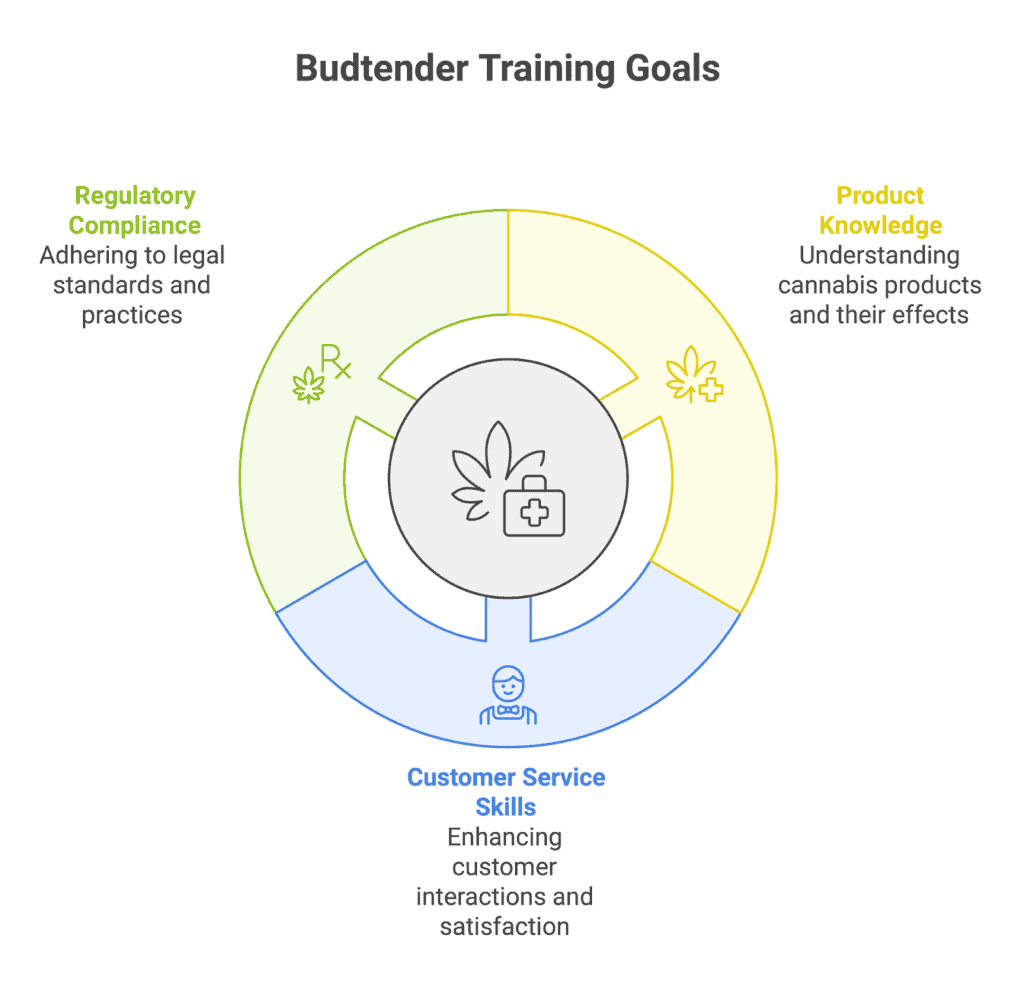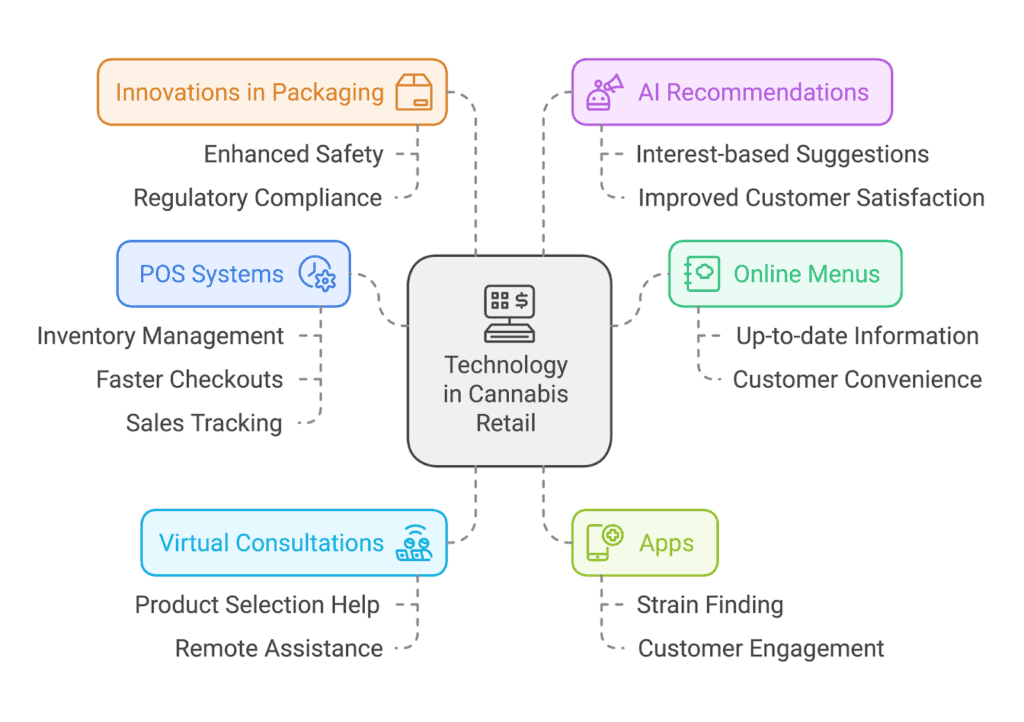
The cannabis sector has undergone tremendous transformations in recent years, especially for budtenders. Once considered to be little more than retail employees, budtenders are now considered to be trusted consultants for cannabis customers. This article examines the beginnings of the cannabis retail industry, the dynamics that exist today, and the prospects that lie ahead for budtenders in this quickly expanding area.
Key Takeaways
- Budtenders have transitioned from basic retail roles to trusted experts in cannabis.
- Training programs, like the Ganjier certification, are becoming essential for budtenders to enhance their skills.
- Customer experience is a top priority, with budtenders focusing on personalized service and creating welcoming environments.
- Technology is changing how budtenders operate, with new tools for inventory and online ordering.
- The future of budtending includes more education roles and adapting to new market trends.
The Beginnings of the Budtending Industry
Entering the Mainstream
Budtending was first established in the context of the counterculture when a strong passion for the cannabis plant was prevalent. Dispensaries in the early days had a laid-back atmosphere and were frequently operated by marijuana lovers and enthusiasts, rather than professionals. Budtenders formed a bridge between traditional cannabis culture and new clients who were looking for premium products in a controlled market as the legalization of cannabis continued to spread.
The First Dispensaries
Almost immediately after the legalization of cannabis, the first dispensaries opened their doors, and they were often run by seasoned cannabis enthusiasts. These trailblazers provided the following:
- Staff members who were knowledgeable on the different types of cannabis and shared their skills with customers.
- Only a few product options were available in comparison to what is currently available.
- Community building and cannabis education are the primary focuses of this initiative.
Challenges Faced by Early Budtenders
At the beginning of the industry, working as a budtender was not without its challenges:
- Formal training was uncommon, and new employees were required to quickly adjust to their new environment by learning on the job.
- Misunderstanding the culture surrounding cannabis frequently leads to judgment, which is a form of stigma.
- Maintaining an up-to-date knowledge of cannabinoid rules that are constantly evolving was a persistent issue.
Despite these challenges, early budtenders created the framework for the profession that exists today, which involves balancing consumer education, service, and compliance with legal requirements.
Contemporary Budtender Training: Budtender Certification and Expertise Requirements

Certification Processes and Programs
Training programs that are structured, such as ganjier certificates, are beneficial to today’s budtenders since they address the following topics:
- Comprehension of cannabis strains, effects, and medical uses is the foundation of cannabis knowledge.
- Consumption methods include having knowledge of edibles, concentrates, and other forms of cannabis.
- Familiarity with local and state regulations is required for legal frameworks.
The Importance of Product Knowledge
The fact that budtenders are now the initial point of contact for clients makes it essential for them to have a thorough understanding of the product. This involves offering personalized recommendations that are tailored to the specific requirements of each individual, responding to inquiries on product types, impacts, and safety, and building customer confidence in their services.
Customer Service Skills in the Cannabis Industry
Great customer service can set you apart as a budtender. Here are some skills you should focus on:
- When it comes to providing excellent customer service, exceptional budtenders specialize in active listening, which involves comprehending the preferences and worries of customers.
- The provision of compassionate instruction, in particular for those who utilize medical devices, is an example of empathy.
- They also need to be well-versed in clear communication, which refers to the process of simplifying complicated facts about cannabis for a variety of audiences.
The Influence of Technology on Budtending and Cannabis Retail

The use of modern tools has brought about a revolution in the field of budtending. Some examples of these tools include:
- Point-of-sale (POS) systems, which streamline inventory management, enable faster checkouts and support cannabis sales tracking.
- Ensuring that the online menu is always up-to-date.
- Customers can browse products virtually and make purchases through online orders.
- Offering virtual consultations to help customers choose the right products.
- New apps that help customers find the best strains.
- Innovations in product packaging and labeling.
- Customers are assisted in finding the right products based on their interests through the use of AI-powered recommendations.
By keeping up with the latest technological breakthroughs, budtenders may ensure that they continue to be valuable in an industry that is highly competitive.
The Future of the Budtending Industry
Evolving Responsibilities and Opportunities
- Providing comprehensive education on cannabis.
- Maintaining a current knowledge of new strains, products, and study findings on both recreational and medical cannabis use.
- Adapting to growing customer needs and regulatory contexts.
Adapting to Changing Regulations and Market Trends
Because of the quick pace of change in the cannabis sector, flexibility is required. Budtenders are required to have an understanding of local legislation and the latest industry developments. This also means adapting to the changing desires of your customers as the use of cannabis becomes more diverse.
Advice for Aspiring Budtenders
- Establish trust through attentive service.
- Maintain awareness of the latest product trends.
- Recommendations are improved by utilizing personal experiences with the product.
- Educate yourself on the various strains, effects, and techniques of ingestion.
- Take into account the fact that clients may have a variety of inquiries and requirements.
- Don’t lose your patience. Many customers will not be aware of what it is that they want.
Bottom Line
The function of budtenders has expanded far beyond that of salespeople. They have evolved into respected guides, instructors, and advocates for cannabis culture. Budtenders are influencing the future of cannabis retail since they now have access to more sophisticated training possibilities and the support of technology. The influence of these essential individuals will continue to grow in tandem with the ongoing development of the industry.
Frequently Asked Questions on What Makes a Good Budtender
What do budtenders do?
Budtenders are responsible for selling, recommending, and marketing cannabis products, as well as providing education, and ensuring compliance with rules.
Do budtenders require specialized training?
Many of them pursue certifications and training programs in order to improve their already impressive skill set.
What skills are important for a budtender?
Product knowledge, the ability to provide excellent customer service, and the ability to communicate effectively are two of the most critical talents for budtenders to possess.
What are the requirements to become a budtender?
Typically, some of the requirements include being at least 21 years old and completing the appropriate training which involves acquiring information about cannabis.
Can you explain what a ganjier is?
An individual who specializes in providing individualized recommendations for cannabis products is known as a ganjier. This type of budtender is comparable to a wine sommelier.








